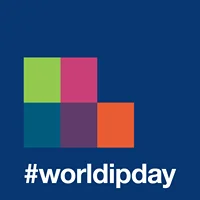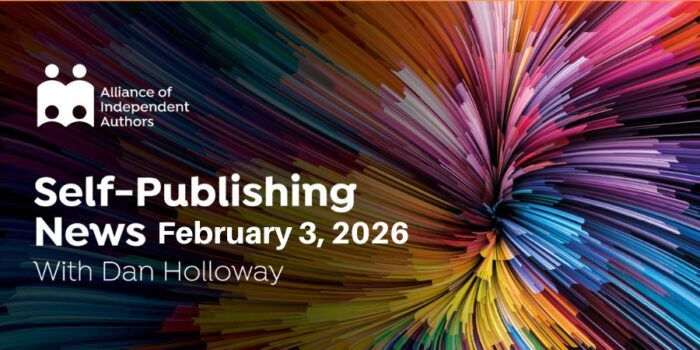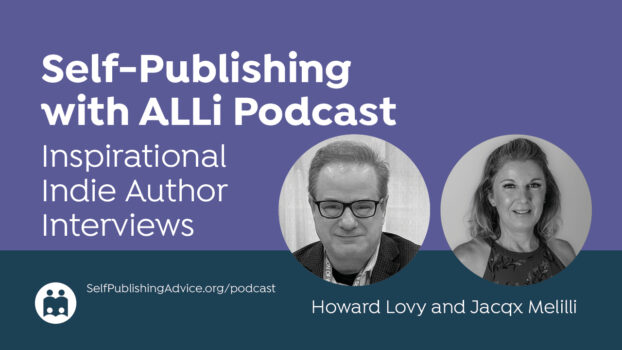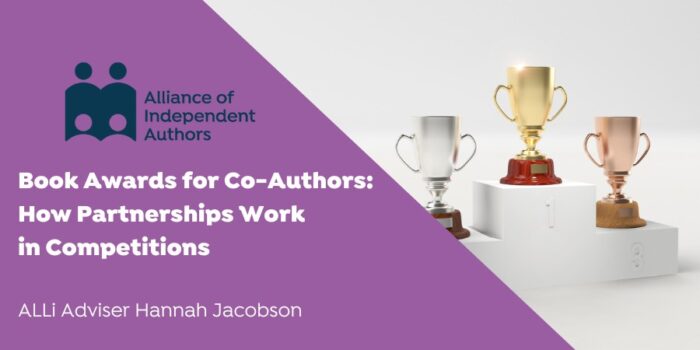 Our News Editor Dan Holloway starts a timely conversation about intellectual property and how it affects indie authors. Read on, then join the debate via the comments box.
Our News Editor Dan Holloway starts a timely conversation about intellectual property and how it affects indie authors. Read on, then join the debate via the comments box.

You know that it really must be the case that “everything has a day these days” when there is a World Intellectual Property Day. But those of you who have followed my weekly news round-up at all over the past year will be able to imagine just how excited this discovery has made me.
Why this Day is Important
The purpose of “days” is primarily to start conversations, and with that in mind I want to make this post more about getting you to share your own thoughts and start your own conversations than about me pontificating (I do enough of that). So I want to look, very briefly, at some of the ways that intellectual property touches on our lives as writers.
The first thing to say is that as writers, intellectual property affects us all.
And not necessarily in the ways that we think. It is easy for us to assume that intellectual property is all about piracy. And it includes that, but it includes so much more.
On a single day in my creative life, intellectual property might affect me in the following ways
- Looking for a picture for my blog or for a video captured powerpoint (because I need to be careful not to share what I am not allowed to share)
- Needing to look up the details of a research paper (publicly funded and globally important science is often hidden behind paywalls that pump billions to academic publishers’ profits)
- Discovering that my books appear on a filesharing site (which means someone has done something with my book that only I had the right to do)
- Playing around making found poems (because even if I have thought of something really cool to do that involves someone else’s material, I might not be allowed to do so)
- Writing about someone who’s a music fanatic (because quoting even a tiny chunk of song lyrics can land you in hot water)
- Uploading my latest book to Kindle (because I have to choose whether or not to activate DRM, a file protection method that makes it harder to pirate my book but also means you can’t read it on multiple platforms)
- Sharing the latest cool thing I’ve made on social media (because depending on the platform I use I may, as the small print will tell me, be giving up some of my rights)
- Assessing a student’s essay (because plagiarism levels are soaring and it matters that students don’t get artificial grades by stealing someone else’s work)
Each of these involves intellectual property, and the laws and conventions around it, in very different ways.
A Difference Approach: Creative Commons
 I want to finish with a brief outline of Creative Commons , an alternative way of doing copyright that has caught the imagination of millions of digital creators. It comes from the open access movement, which is firmly committed to allowing everyone to use everything that has ever been created in order to move the world forward, but it can be used by everyone, and you will see it used everywhere.
I want to finish with a brief outline of Creative Commons , an alternative way of doing copyright that has caught the imagination of millions of digital creators. It comes from the open access movement, which is firmly committed to allowing everyone to use everything that has ever been created in order to move the world forward, but it can be used by everyone, and you will see it used everywhere.
Creative commons licences are a way of telling people what they can do with your content. You get to decide:
- who can share your work
- whether they can modify it
The creative commons site creates a licence to reflect this and, if you wish, a means of attributing your content to you whenever it is shared. You get to control what happens to your work, and others still get to use it.
Intellectual property matters to all of us, but for many of us it means different things. Fortunately, my word count limit means that I won’t stir the pot with my own thoughts, but I do want to know, what does it mean to you?
On #WorldIPDay, let's talk about #intellectualproperty - with @agnieszkasshoes Share on X- Find out more about World Intellectual Property Day at its website here: http://www.wipo.int/ip-outreach/en/ipday/
OTHER POSTS ABOUT INTELLECTUAL PROPERTY




One of the reasons I can’t join some organisations (writing or licensing) is because they campaign for even more and tighter copyright laws – which is the opposite of what I want. Even though I’m an author I support clearer and simpler laws, that allow much more than currently. I hate the way that as writers we self-censor all the time, worrying about mentioning real world places, events and brands. I hate the way that things that should have passed into public domain get their copyright extended because rich corporations can pressure law makers for exceptions and extensions. I hate the way copyright on classic works of art has expired – but you end up not being able to re-use that work because a gallery or museum manages to restrict it. I hate the way that there might be stories and characters in the public domain (fairy tales and so on), yet you have to be careful because companies like Disney may have used those names and stories in works they have then copyrighted and trademarked, meaning you then have to be careful how you use things that should be available to all. I hate the way trademarks are allowed to use and restrict common words (and in some cases images, fonts, colours). I take a photo I want to use – but maybe one of the buildings in it is protected or restricted and I am infringing in some way? I record a video and it shows logos and images in the background, maybe a poster, which is copyright with reproduction forbidden, perhaps exacerbated by music playing from a nearby TV which is also copyrighted. Your examples above touch on other areas where we end up with a minefield of complications that require an (expensive) legal expert to fully understand and navigate. Partly this complex scenario has built up because so many organisations keep campaigning to add yet more piecemeal restrictions, and no-one has an overall view. For all these reasons, and more, I would support simpler and more open intellectual property laws, with far more cases where things are unequivocally okay. Currently I can’t even register with a licensing society because I allow people to do more with my work than their licence would if I signed up, and I don’t want to restrict people (as discussed at http://www.karldrinkwater.uk/2016/09/copyright-restrictions-on-books.html )
Agreed, and those ever-tighter copyright laws cause a lot of collateral damage. Companies lobby furiously to extend copyright because they have a few, extremely lucrative works, but by doing so, they also prevent far more, no-longer-economically-relevant works from entering the public domain.
There’s also the problem of people not using material in ways that are legal, because of the fear of being sued. I’d love copyright law to be simple and easily understood.
Great piece on your blog, Karl. I deliberately didn’t state my own opinions here (I’ve done so at great length elsewhere) but I figured giving the last word to Creative Commons probably got across my feelings. I agree with you wholeheartedly.
I’ve been using open source software since the late 1990s, so I have a lot of time for Creative Commons. I like the idea of copyright, but it seems that every time there is any suggestion of limiting copyright, reducing length of copyright protection, etc, there are cries of anguish from publishers and authors. If the intent of copyright is to encourage creativity and allow creators to make a living (as I believe it is, or at least, should be), then I’d like to see evidence-based copyright reform, to fit those aims.
“If the intent of copyright is to encourage creativity and allow creators to make a living (as I believe it is, or at least, should be), then I’d like to see evidence-based copyright reform, to fit those aims.”
Yes yes yes!!